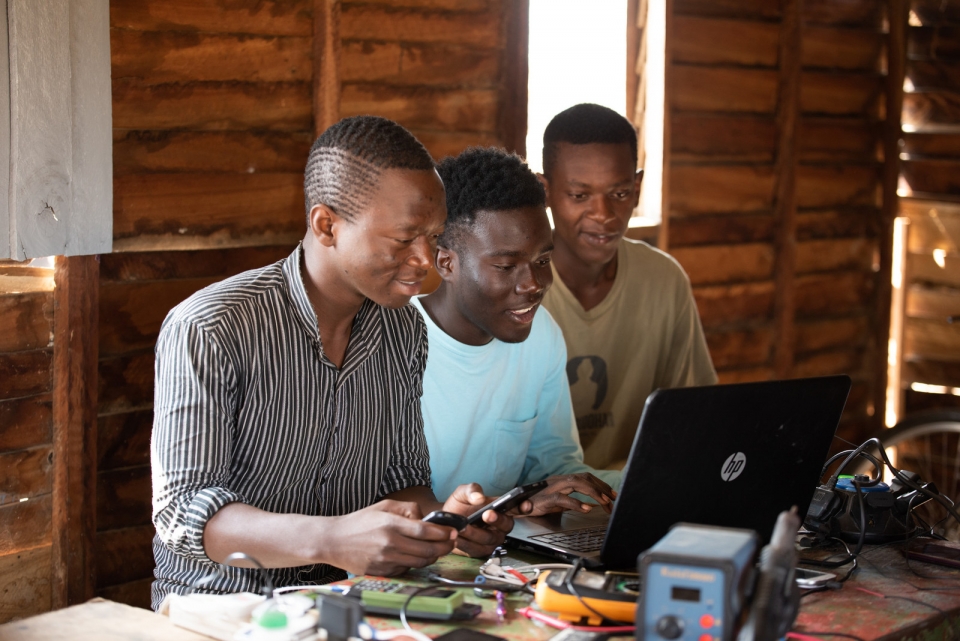Our evolving work in Zimbabwe

AFSC’s work in Zimbabwe focuses on social cohesion, building capacity for conflict transformation and resilience building in Harare, Bulawayo, Marondera, Goromonzi, and Binga.
Over the past 10 years of working in Zimbabwe, we have helped to transform communities and structures through developing the life skills of vulnerable communities and strengthening their advocacy capacity; creating dialogue platforms for key stakeholder groupings who would not ordinarily meet/interface; while positioning youth and marginalized groups to become active social change agents within their own communities.
Using an incremental approach, our work has evolved to include broader thematic areas of intervention such as research and policy advocacy on conflict sensitive business approaches; enhancing the capacities of civil society actors and faith-based organisations in conflict analysis and mediation practice for strategic participation in national healing and reconciliation frameworks and meeting the economic and social justice aspirations of peri-urban communities through infrastructural development.
Our impact
AFSC contributes to healthier communities and improving social cohesion in politically volatile places.
More than 4,000 people have taken part in nonviolent conflict resolution trainings as a result of AFSC’s train-the-trainer programs. Our work with partners has developed a critical mass of peacebuilders who spearhead conflict resolution and mediation efforts within their communities. The results of these efforts can be seen in the strong sense of community cohesion achieved in Hatcliffe Extension, Hopley Farm, and Enyandeni villages.
AFSC convenes stakeholders who wouldn’t ordinarily meet to engage in peaceful dialogue.
Efforts to promote peace are more effective when stakeholders have spaces to share experiences. Through AFSC’s Dialogue and Exchange Program, we coordinate several regional gatherings, bringing together academics, politicians, media practitioners, researchers, civil society organisations, churches, traditional leaders, youth, women, and many others. They
have discussed topics such as trauma healing, foreign investment, and restorative justice.
These convenings have led to policy briefs, press statements, and the creation of transnational networks, with one effort developing into a national campaign.
AFSC trains women and youth to advocate and influence local policy.
With support from AFSC, community members have successfully advocated for significant changes to enhance their social and economic well-being. In Hatcliffe and Hopley Farm, their efforts led local authorities to allocate land for small and medium business development. That allowed for the construction of two community workspaces in Hatcliffe and Hopley, which have helped more than 1,300 community members to take part in vocational training programs, gain access to markets, and increase their income – all while fostering peaceful relationships and working for the good of the entire community.